You will be equipped with the following tools:
-
The Most Helpful Thoughts
Help clients recognize unhelpful thoughts and consider more helpful alternatives in a given situation.
-
Using Self-Distanced Language to Gain Perspective on Negative Events
Help clients gain perspective on negative experiences by using self- distanced language as a regulatory mechanism.
-
The ABC Model of Helpful Behavior
Help clients reflect on adaptive behavior to build awareness of the triggers and long-term consequences.
-
Structured Problem-Solving
Guide clients through structured problem-solving by defining the problem, generating solutions, and creating an action plan.
-
Solution-Focused Scaling Questions
Help clients improve their lives using solution-focused scaling questions
-
Self-Forgiveness Letter
Help clients forgive themselves using the four Rs of self-forgiveness: responsibility, remorse, restoration, and renewal.
-
Seeing Through the Hindsight-Bias
Help clients unpack a past decision so that they may understand what contributed to this choice at that point in time.
-
Replacing Unhelpful Thoughts With Helpful Alternatives
Teach clients how to reframe unhelpful, negative thoughts into thoughts that are realistic, self-compassionate, and result in constructive emotions and actions.
-
Replacing Non-Grateful Thoughts With Grateful Thoughts
Help clients practice gratitude by increasing awareness of ungrateful thoughts and replacing them with more grateful alternatives.
-
Pleasurable Activities Journal
Help clients increase opportunities to experience joy by planning and recording pleasurable activities.
-
Optimistic Thinking Style
Help clients develop an optimistic thinking style by learning to explain positive events as personal (internal), permanent (stable), and pervasive (global).
-
Dropping Anchor (& .MP3)
This tool teaches clients to ground themselves in the present moment to manage strong, challenging emotions and includes a guided meditation audio file.
-
Diary of Better Moments
This exercise aims to help clients cultivate a more balanced perspective on life by noticing and recording the everyday moments when things go better than, or not as bad as, expected.
-
Changing Behavior Through Positive Reinforcement
The goal of this exercise is to help clients change their behavior using positive reinforcement.
-
Breaking the Vicious Cycle
Help clients analyze a vicious cycle by exploring the sequence of negative events that are currently reinforcing a personal problem and to help them break out of this cycle and enter a healthy, adaptive cycle.
-
Behavioral Activation
Help people with depression or lowered mood become more physically active through activity scheduling and mood monitoring.
-
A Letter from Your Best Day to Your Bad Days
Help clients capture exceptional moments, situations, and days when things are better to serve as ongoing reminders of resiliency, and help them cope in times of suffering.
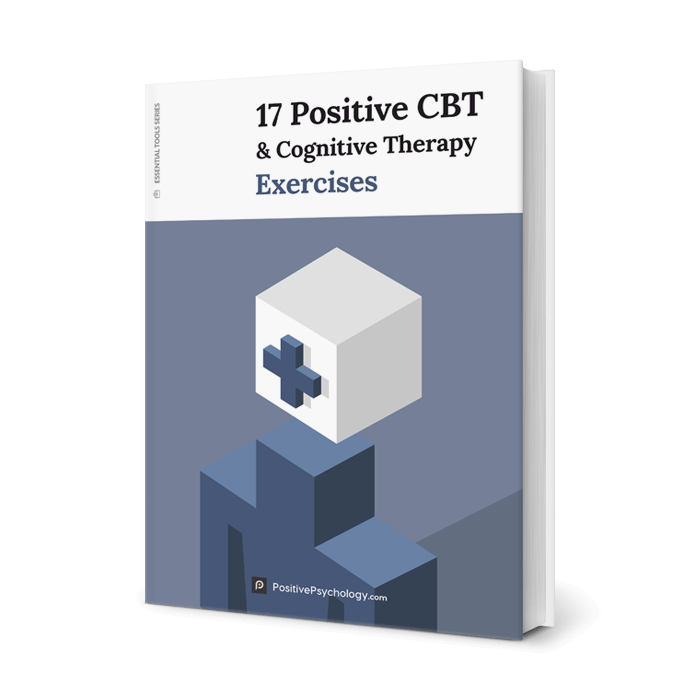
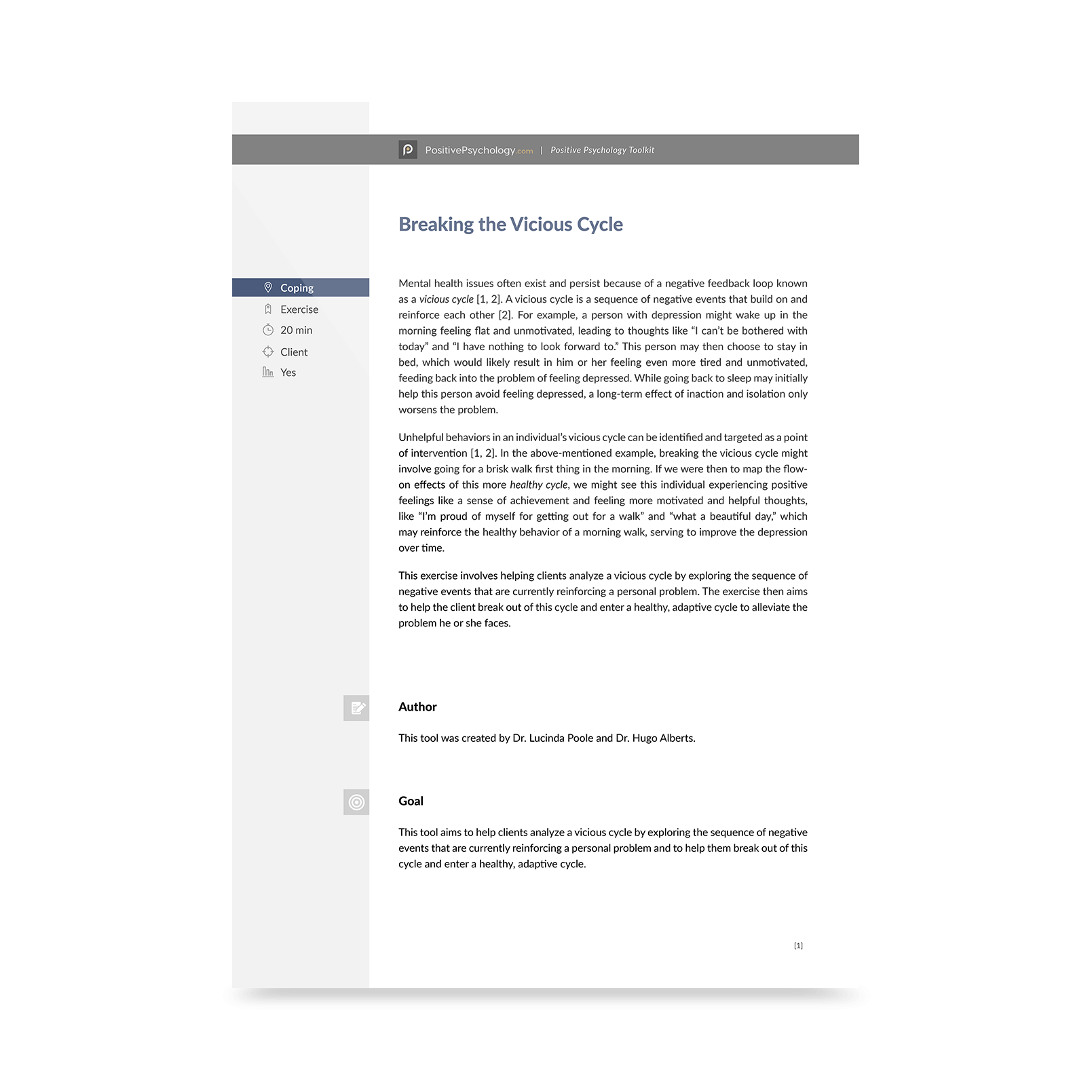
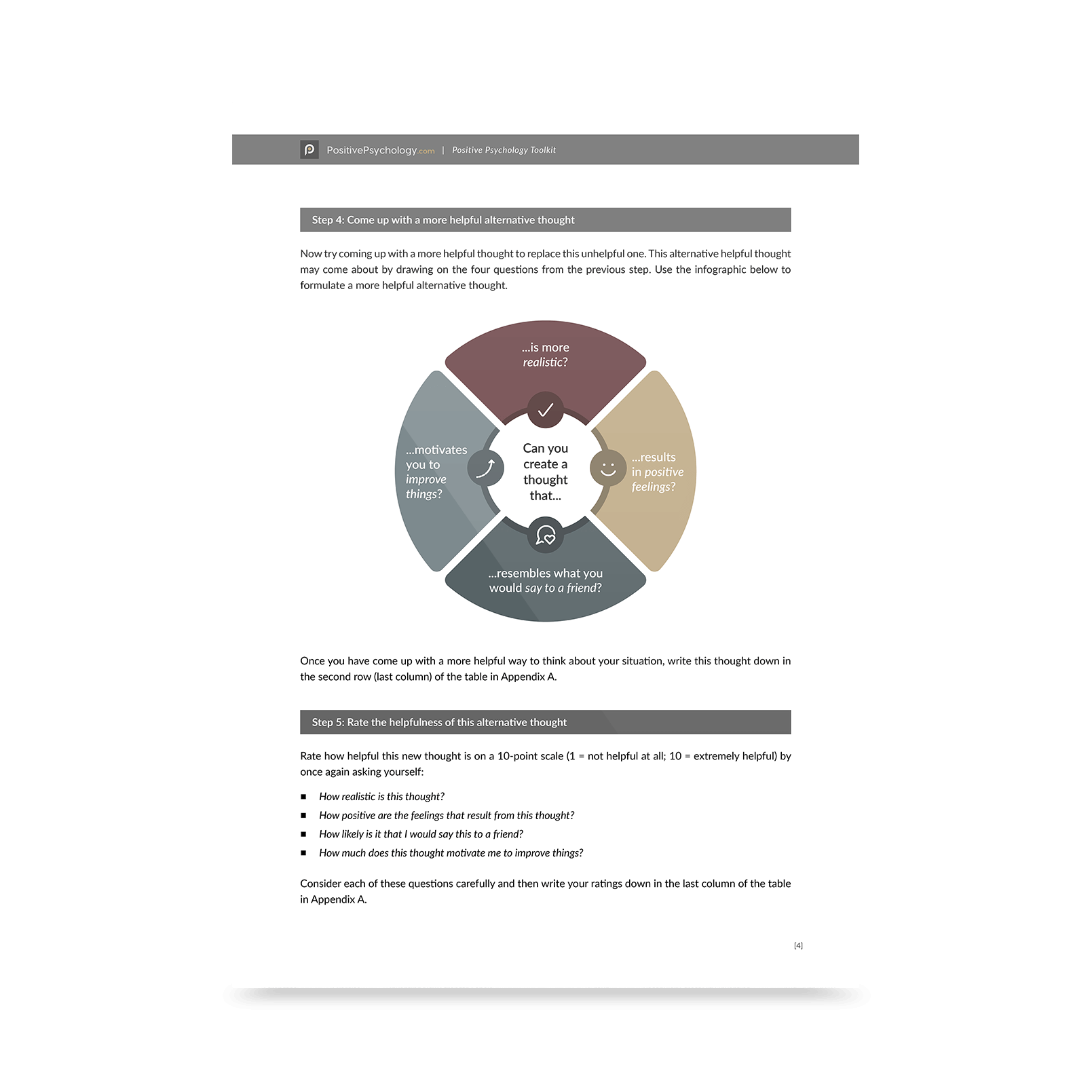
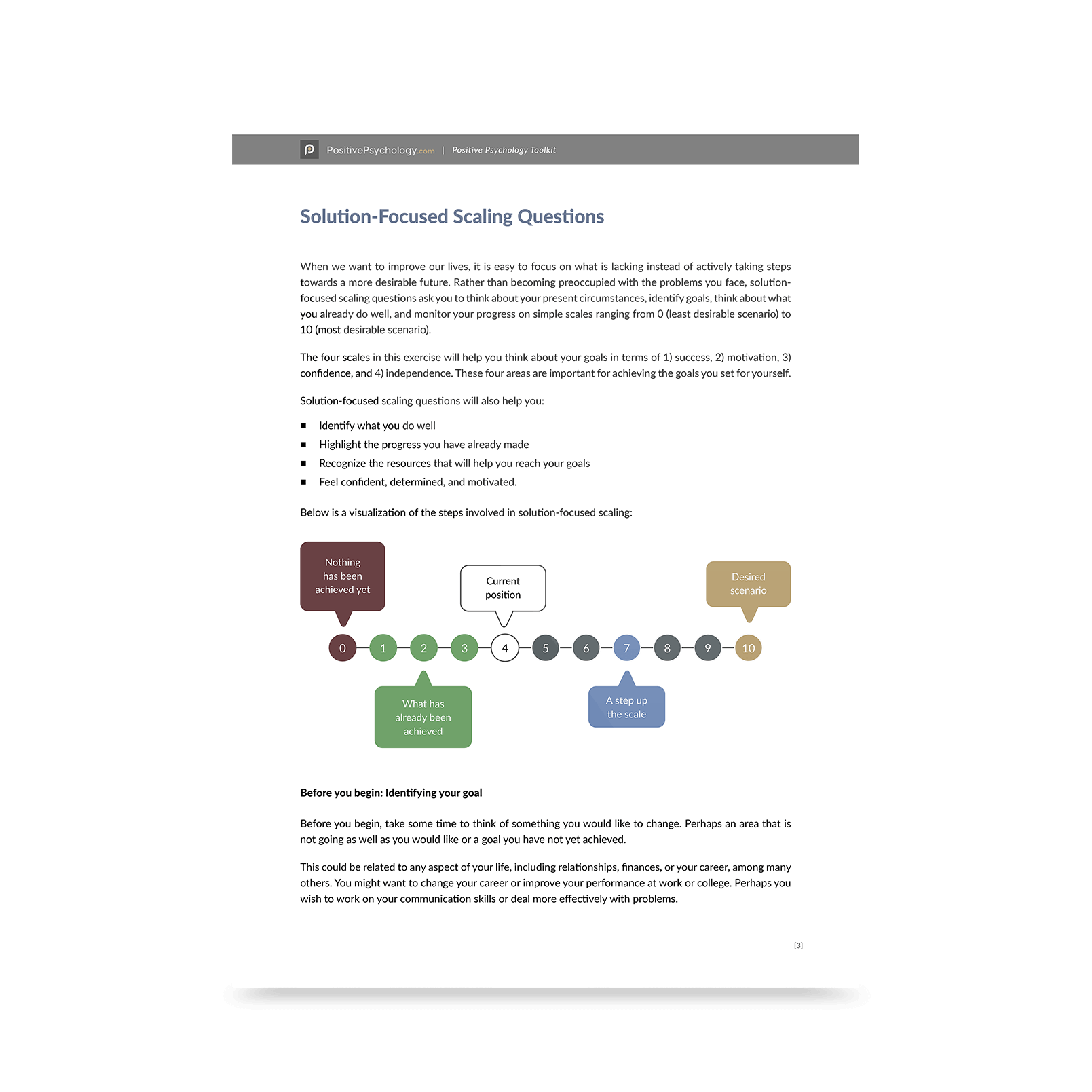
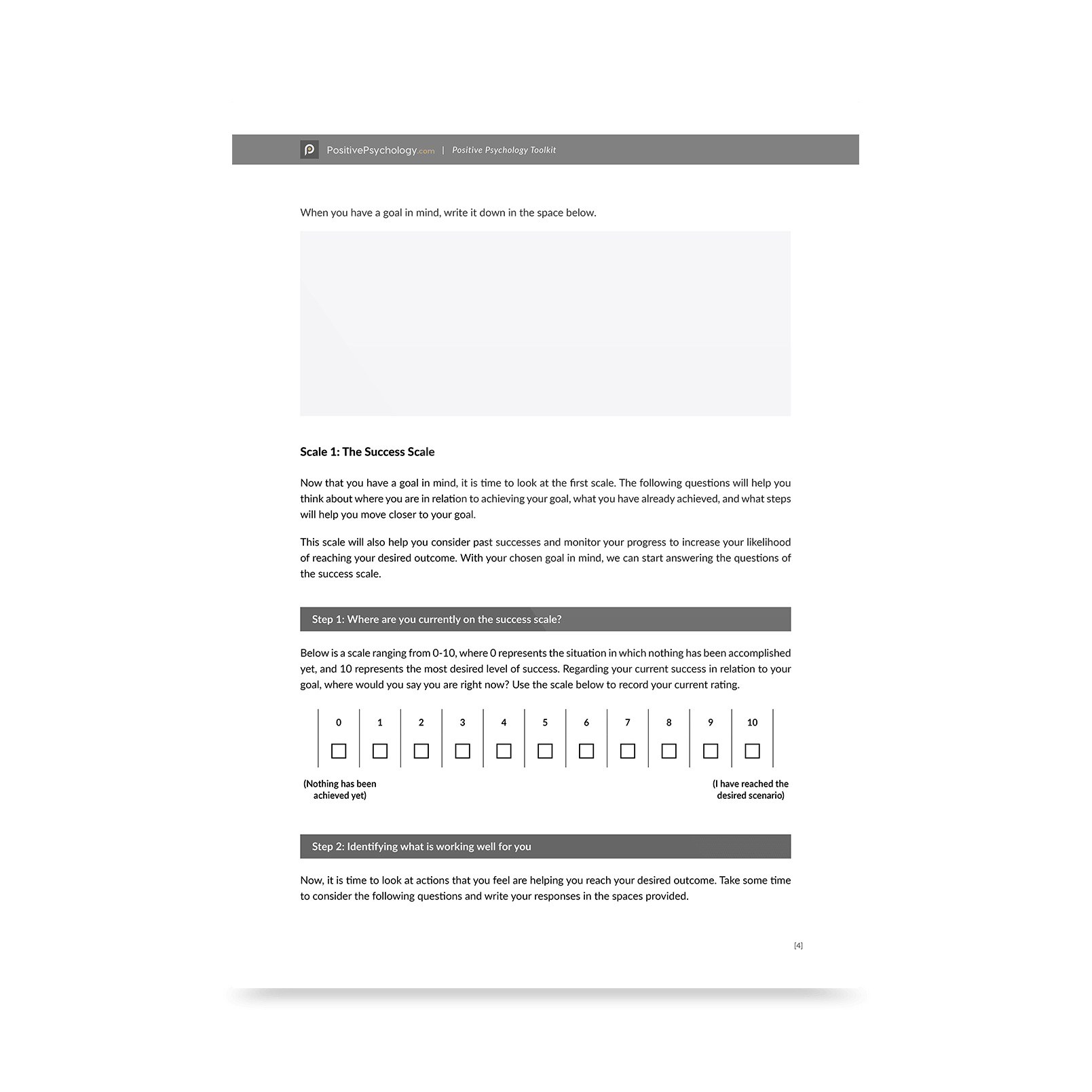
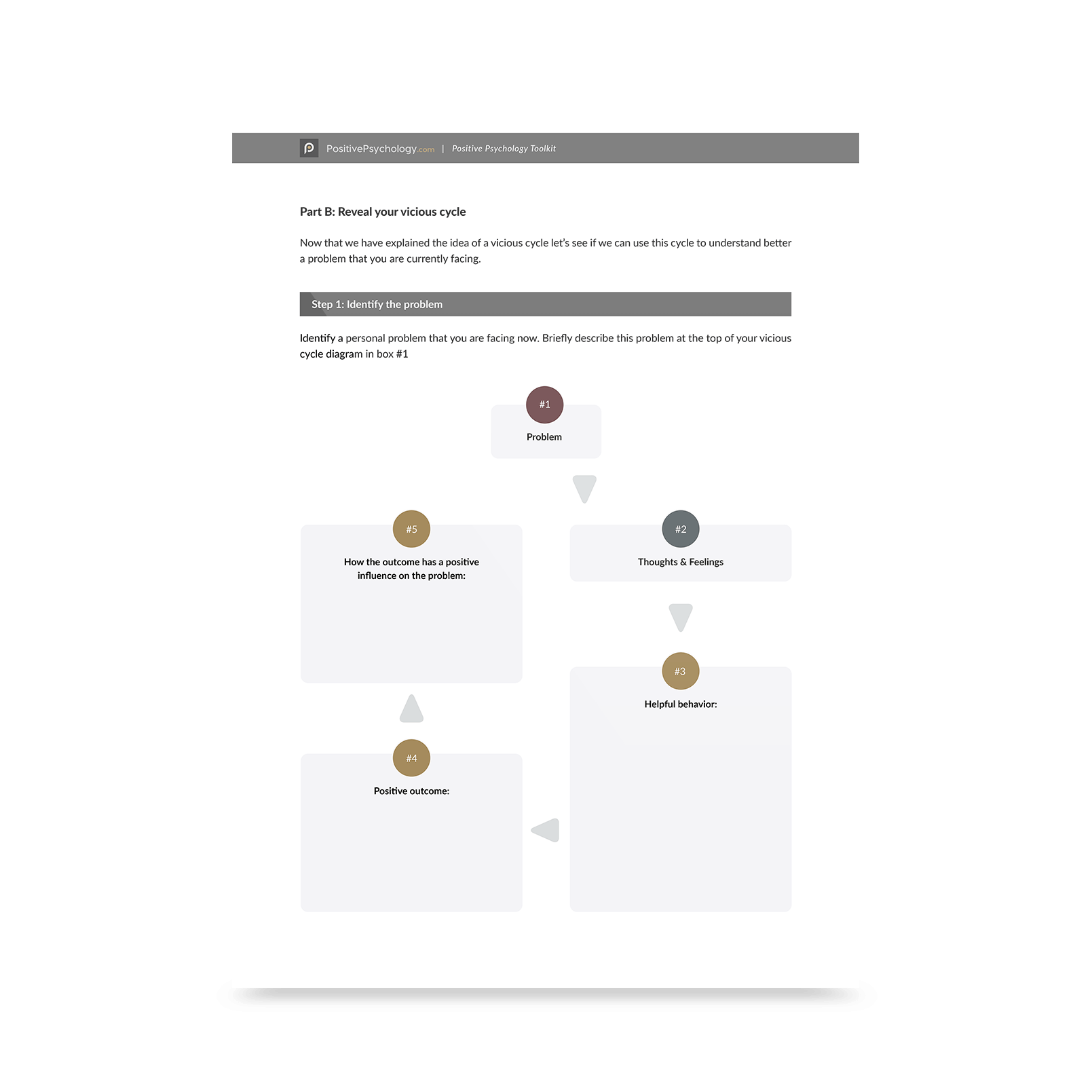


















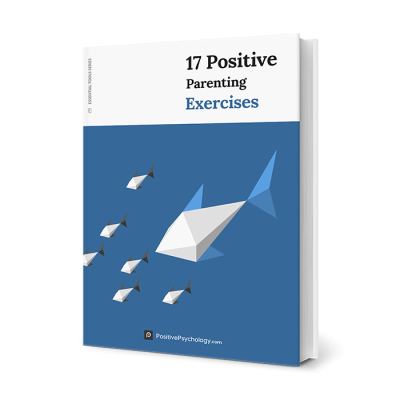
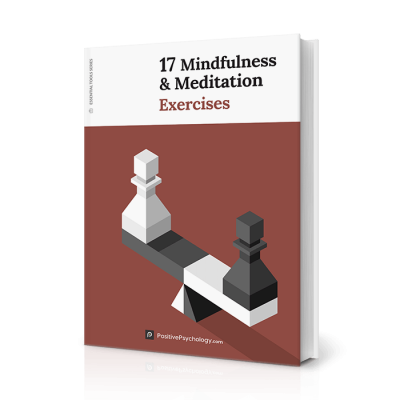
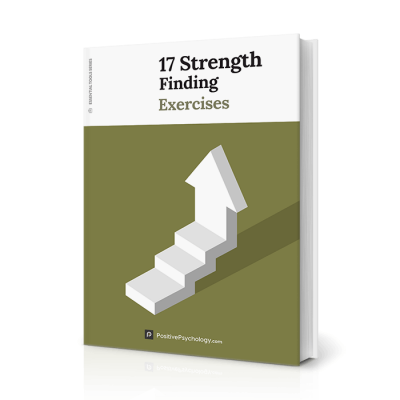
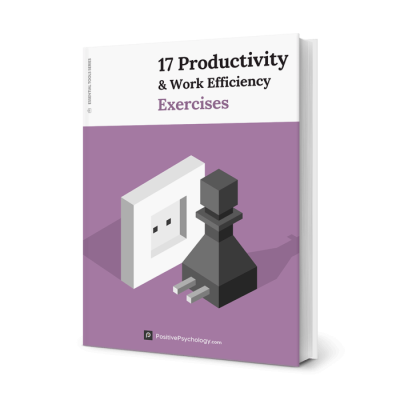
Allison Cowan –
I love how full of information the product has. It’s clear, concise and professional. I like that the exercises are given in manageable pieces so that a client will not feel overwhelmed.
Paul Stuart –
Very clear instructions on how to use and I particularly like the options/variations outlined for some of the exercises. There is a very clear explanation of the logic/theory behind each exercise.
Lisa Jacobsen –
I absolutely believe that thinking and doing positive is what works the best with people who have addiction or mental health issues. I use these tools in my practice to help my clients see that focusing on the positive can produce better results.